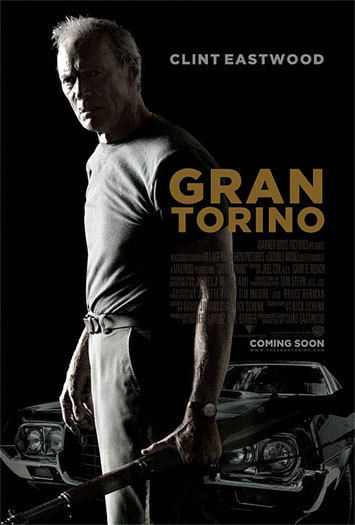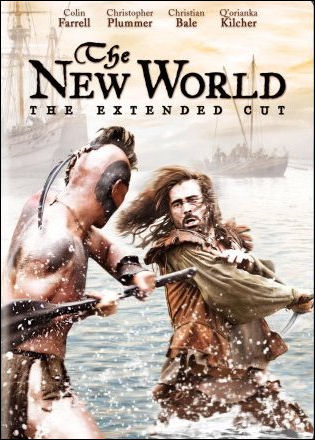“I can’t take much more of this,” Larry David wrote yesterday on the HuffPost. “Two weeks to go, and I’m at the end of my rope. I can’t work. I can eat, but mostly standing up. I’m anxious all the time and taking it out on my ex-wife, which, ironically, I’m finding enjoyable. This is like waiting for the results of a biopsy. Actually, it’s worse. Biopsies only take a few days, maybe a week at the most, and if the biopsy comes back positive, there’s still a potential cure. With this, there’s no cure. The result is final. Like death.
“Five times a day I’ll still say to someone, ‘I don’t know what I’m going to do if McCain wins.’ Of course, the reality is I’m probably not going to do anything. What can I do? I’m not going to kill myself. If I didn’t kill myself when I became impotent for two months in 1979, I’m certainly not going to do it if McCain and Palin are elected, even if it’s by nefarious means.
“If Obama loses, it would be easier to live with it if it’s due to racism rather than if it’s stolen. If it’s racism, I can say, ‘Okay, we lost, but at least it’s a democracy. Sure, it’s a democracy inhabited by a majority of disgusting, reprehensible turds, but at least it’s a democracy.’ If he loses because it’s stolen, that will be much worse. Call me crazy, but I’d rather live in a democratic racist country than a non-democratic non-racist one.”
Andy, Opie, Fonzie
An inspired Barack Obama endorsement piece by the stars of The Andy Grifith Show and Happy Days — Ron Howard, Andy Griffith and Henry Winkler. A brilliant piece, whoever dreamt it up and directed. (Original link on Funny or Die.)
Note: I haven’t used the word “Opie” to refer to Howard in many, many years, and I won’t henceforth ever again, but I figured it was okay in this context.
Thompson’s KST Take
Variety‘s Anne Thompson is the latest convert to the view that I’ve Loved You So Long‘s Kristin Scott Thomas is not only a shoo-in for a Best Actress nomination but “leads the field.” But I have a slight disagreement or two with her assessments so let’s review.
Reason #1, she says, is that Thomas “wears no makeup, looks awful and moves from shut-down depression to life.” I don’t think KST looks awful at all in this film. She’s just not wearing makeup and therefore looks her age, and so what? The bottom line is that she’s an extremely beautiful woman, and no lack of mascara, eyeliner, base and blush can alter that fact. She had her “face on” when I met her about ten days ago, and I was thinking to myself (but didn’t say out loud) that she’s a tiny bit hotter and more intriguing in her plain-Jane mode.
Reason #2 is that Thomas is “a Brit who speaks French,” which Thompson says is “huge.” Hah! This speaks volumes about undercurrents of social insecurity (i.e., a certain nagging unease about L.A. and its denizens being perhaps a bit too provincial in this or that way and/or lacking in cultural sophistication) among Academy members and others on the scene.
Thompson’s reason #3 about KST having “done good work for a long time and is overdue” and reason #4 about Thomas earning raves on Broadway for The Seagull are completely accurate.
Thompson concludes by saying that Tom Tapp and Stephen Schaefer agree. And what is Hollywood Elsewhere’s opinion on this subject? Chopped liver?
Doubt Peek
A courtesy screening of John Patrick Shanley‘s Doubt is happening this evening for the original B’way cast (including the legendary Cherry Jones, who played Meryl Streep‘s role on stage). Not many columnist-critic types are attending. The Envelope‘s Tom O’Neil, EW‘s Dave Karger, Mark Harris, some ghostwriter for Liz Smith.
Soloist Slot Needs Filling
So what major Oscar-worthy feature will be chosen to open the AFI Film Fest on 10.30, now that The Soloist has been withdrawn from that slot? An announcement will be forthcoming later this afternoon, I’m hearing. If I were running the AFI show, I would get either Doubt or Nothing But The Truth. Or I’d shift the already-scheduled The Wrestler or Slumdog Millionaire into the opening-night position.
The Soloist was yanked due to stars Robert Downey, Jr. and Jamie Foxx not being interested in doing the red carpet due to the general atmosphere of humiliation and embarassment stemming from Paramount’s decision to bump the Joe Wright-directed drama into Match 2009.
Don’t Tread On Me
What does this seemingly legit Gran Torino one-sheet tell you? Here’s what it tells me: (a) Forget “sensitive” — this is a brass-tacks movie about one snarly old mofo; (b) The old Dirty Harry spirit and physicality is alive and well (that’s an enviably flat stomach for a 78 year-old!); (c) We’ll get into the racial-bigotry-and-animosity stuff in late November or early December — all we want to do now is send out those good old Clint vibes. Gran Torino now has a firm release date of 12.17.08. [Sorry for previous 11.17 typo.]

Rats Leaving Ship
Gregg Goldstein posted a Hollywood Reporter story late last night about “several of the Weinstein Co.’s top founding film executives departing the company with no imminent replacements for their positions.” You could say that the facts speak for themselves and that’s fine, but the story as written seems to skirt the basics. Why can’t Goldstein just say that the Weinstein Co. is apparently scaling back while trying to negotiate a difficult stretch of road? Which would be a polite way of putting it.
Mercifully Short
“The story is ludicrous. You can imagine where it goes from here.” What respected cult movie is this dialogue from? And who said it?
Tapp on KST
“Unlike Clint Eastwood‘s Changeling, there is no melodrama in I’ve Loved You So Long, only real, quiet, strong acting,” says Daily Beast columnist Tom Tapp. Kristin Scott Thomas‘ Juliette does not rant at society’s injustices. Hers is a reactive performance. She watches the family. She watches her employers. She watches her sister. And somehow, our attention is held the entire time — I was completely captivated observing her, observing the world.
“Thomas’s is the kind of performance that critics always say deserves an Oscar, but rarely wins: an interior role in a small film in another language. But who knows? The critics have been rapturous. Maybe the Academy will be as well. The film will be a glaring absence in the Foreign Film category (France’s The Class is France’s selection this year), but we’d be glad to see Thomas in the Best Actress category again, where she belongs. There certainly has not been a better performance this year in any country.”
Malicko Ultimo
I’ve seen Terrence Malick‘s The New World three times — the 150-minute version that screened for the press in late ’05 (just once), and the shorter 135-minute version that opened in early ’06 (twice). But I’ve never seen the 172-minute extended cut that came out on DVD on 10.14. I’ve simply been too lazy to pick it up. I have the reviews, of course, but can anyone pass along some non-pro thoughts?


